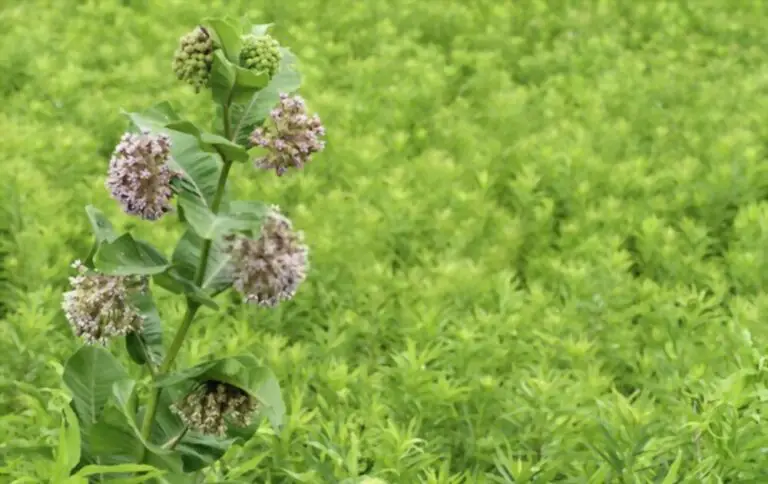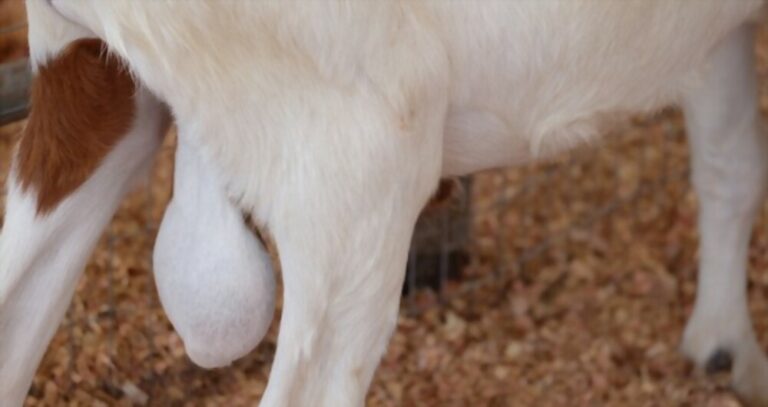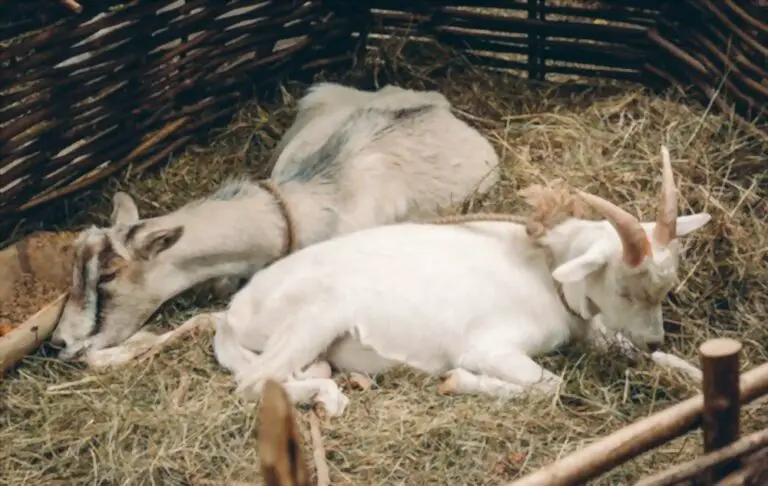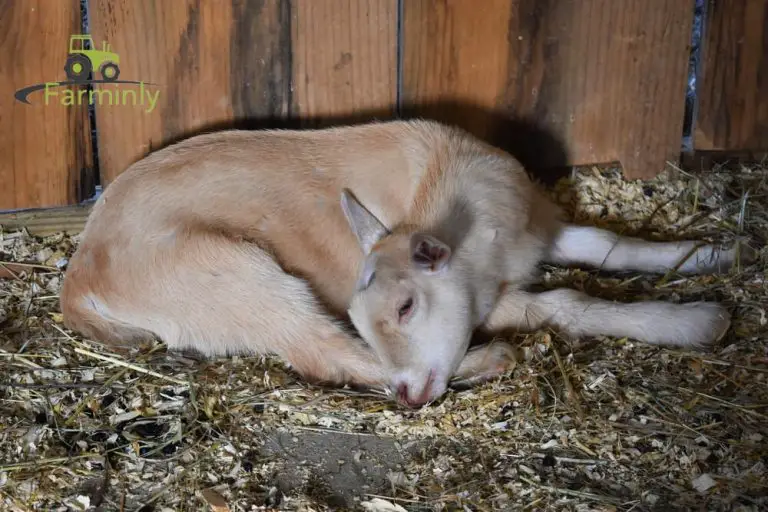Have you ever wondered if goats can eat Acorns? The answer is yes! Goats are omnivores, meaning they eat plants and animals, so Acorns are a perfectly acceptable snack.
But, as is often the case with food, you should keep a few things in mind before feeding Acorns to your goats. This article will cover everything you need to know about feeding acorns to goats. Keep reading to find out!
Can Goats Eat Acorns?
Acorns are a great source of protein, carbohydrates, fiber for goats, not to mention several minerals such as potassium, phosphorus, and sodium. They are also low in fat, which is excellent for controlling goats’ weight.
However, like many foods, Acorns can also be dangerous when eaten in large amounts. They contain a lot of tannins, which are bitter substances that can be toxic to animals like goats. This toxicity can cause gastrointestinal issues, such as diarrhea and colic.
Goats are known for their hearty appetite and hardy nature, but did you know feeding them acorns can be good for their health and taste buds? Acorns are high in essential vitamins and minerals and provide a tasty heretofore-unseen treat for goats. Other benefits include:
- Acorns are a great source of calcium and potassium, essential for a healthy goat’s diet.
- Feeding goats acorns can encourage them to eat more, improving nutrition and digestive health.
- Acorns are high in biotin, which helps maintain coat health, and copper, an antioxidant and aids in iron absorption.
- Lastly, goats love eating acorns, and providing them with a delicious snack can be a great way to treat them and help build trust between you and your goat.
Ultimately, there are many benefits to feeding acorns to goats. Acorns are perfect for their overall health, and goats love the taste. And who can blame them? Acorns are delicious!
Tannin & Acorn Poisoning
If you want to give Acorns to your goats, it’s essential to do it in moderation and ensure that your goats don’t consume more than a handful daily. Before feeding Acorns to your goats, remove the husks and shells. It will help reduce the number of tannins entering their bodies.
Additionally, giving Acorns to goats in the winter or spring is recommended when their stomachs are more likely to deal with tannins. Goats should always have access to hay and a well-balanced goat feed, and the Acorns should be considered a supplement, not a central part of their diet.
Disadvantages of Feeding Acorns to Goats

Goats are versatile animals that serve various purposes, such as milk production and vegetation management, like grasses and brush. While some people may consider it natural to feed goat acorns, there are drawbacks to this practice.
1. Risk of Bloat
Acorns are exceptionally high in tannins, which are plant compounds. While tannins are beneficial in some ways, they may also cause digestive issues in goats. Feeding large quantities of acorns can cause bloat, or stomach distress, in the animals. Bloat can cause discomfort, difficulty breathing, and other health problems.
2. Mineral Deficiencies
Like other animals, goats require mineral balance in their diets for healthy, long lives. Acorns are missing vital minerals that goats require to remain healthy. Feeding acorns can lead to deficiencies, which can cause various health problems.
3. Weight Issues
Goats should receive an appropriate diet consisting primarily of hay or grass to be healthy. Acorns are high in fat, which can easily cause goats to gain weight and increase their chance of developing health problems like lameness and metabolic issues.
Preparing Acorns for Goats
Acorns and goats are different species, but both can benefit from adding the other to their diets. While they can survive on many vegetation types, they can benefit from the dense and nutritious acorns, while acorns provide a tasty, high-calorie snack for goats.
If you decide to give your goat acorns as a treat, you should introduce them to its diet slowly. Acorns can be added in small quantities, about one teaspoon for every 10 pounds of body weight. This amount should gradually increase as your goat gets used to eating acorns. To introduce acorns to goats, you’ll need to do the following.
Step 1: Collect Fresh Acorns
Goats are unlikely to eat stale or rotten acorns, so gather fresh ones before introducing them. It’s best to pick acorns that are still firm and green in color that have not dropped from the tree.

Step 2: Fend Off Pests
Before introducing acorns, you must do all possible to fend off pests. Acorns can be the target of many creatures, like mice, squirrels, and chipmunks, so take measures to keep these creatures away from stored acorns or keep the acorns in a closed storage container.
Step 3: Show the Goats One Acorn at A Time
Goats can be cautious around new food, so introduce them to acorns slowly. You should drop a single acorn in the goat’s pen and let it come to terms with the concept. If the goat inspects, sniffs, or tries to eat the acorn, reinforce the behavior by offering a few more where it found the first one.
Step 4: Serve Acorns With Other Food
Once the goats understand what an acorn is, you can give them a handful. Just make sure to serve the acorns with other food they already know, like hay, as this will make them more likely to eat the acorns. You can also add salt to the acorns, making them even more appealing to goats.
Step 5: Wait for the Goats to Get the Hang of Eating Acorns
It will take some time for the goats to get used to eating acorns, so don’t worry if they don’t take to them right away. As long as you provide them with regular meals of hay and other food, they should eventually get the hang of it and start munching on acorns at every opportunity.
Introducing acorns to goats is a simple process that can provide them with unique benefits. Follow these steps, and your goats should enjoy acorns in no time!
Other Things To Consider
Goats, like humans, are omnivores and have evolved to eat readily available foods that are abundant in their natural environment. Acorns, an oak tree nut, are a healthful, sustainable, and accessible nutritional source for goats.
While giving acorns to goats is ordinarily an excellent way to provide dietary variation and energy, it is essential to consider several other aspects before offering acorns as a regular food item.
It is vital to ensure that the acorns you give to your goats are fresh and from a trustworthy source. Moldy or rotten acorns can cause digestive issues in goats and sometimes even death. Additionally, too large acorns can be intricate for goats to swallow, leading to choking.
In addition, acorns should be harvested from healthy oak trees and then, if possible, air-dried to prevent spoilage. If the acorns are picked before the traditional harvest season, they should be frozen until their tannins, which may be harmful to the goat, have fallen entirely.
The acorns should then be milled to remove the heads and processed into small pieces to make them more accessible for the animals to consume.
Providing small, limited quantities of acorns to goats is always recommended due to their high fat content. Further, goats should be closely monitored to ensure their digestive systems adapt to the new food source.
If side effects like diarrhea or bloating should occur at any time, it is best to remove the acorns from the goat’s dietary plan immediately. Above all else, goats should enjoy access to plenty of fresh water while consuming acorns or other food items.
Conclusion
Goats can eat Acorns, which can be a great source of nutrients for your animals. However, it’s essential to remember that Acorns can be toxic in large amounts, so you must feed them in moderation.
Introducing it to their diet slowly is also essential to give their gut time to adjust. And always make sure that the acorns are fresh and from a trusted source. Also, remember to remove the husks and shells from the Acorns to reduce the number of tannins that the goats’ bodies absorb.







